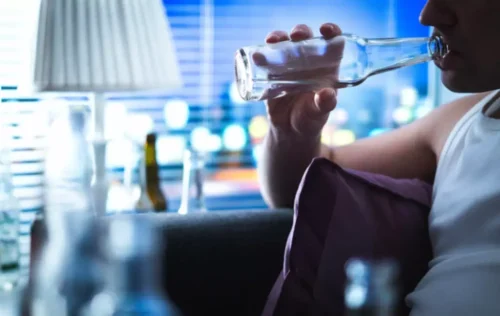
Your role is simply to remind them of commitments they made and offer small nudges in the right direction. For example, they might decide to stick to one drink per occasion or no more than three drinks per week. When you’re drinking together, remind them of the limit they set for themselves. In some cases, the people around you might continue to pressure you to drink.
Prepare for potential alcohol detox
Alcohol use disorder (AUD) is a chronic medical condition characterized by a problematic pattern of alcohol use that leads to clinically significant impairment or distress. It is diagnosed based on specific criteria outlined in the Diagnostic and Statistical Manual of Mental Disorders (DSM-5). We know that taking the first step can be difficult, but we’re here to support – with no pressure or judgement. Call us and let’s talk about how we can support you on your path to recovery. If you’re having difficulty sticking to your goal or just want some extra guidance, consider reaching out for professional support.
Maintain a healthy diet
If you’re not sure if your drinking crosses a certain line or not, try measuring your alcohol intake. In order to change your drinking habits, your first step is to take a close look at your current behaviors and find patterns. Whatever your reason to quit drinking, know that you’re doing yourself a favor. Alcohol impacts https://ecosoberhouse.com/ our sleep, relationships, weight, risk for serious chronic conditions and more. Annie has dedicated her life to helping people take back control of their lives and drinking. Her work has helped thousands break free of this terrible cycle, and if you need something like that right now, I highly recommend checking her out.

Signs that you may be binge drinking include:
- It was middle-aged and older adults who showed the most substantial increase in binge drinking.
- Setting achievable goals is a great way to practice accountability and create lasting change.
- Honest disclosure is vital for optimal care, and even small reductions in alcohol intake can significantly improve health outcomes.
- The physical reactions of binge drinking can then lead to other incidents like driving accidents, physical violence, and problems with friends, family, and colleagues.
- This may mean giving up certain friends and social connections.
Without this potassium channel, alcohol can’t stimulate neurons and thus can’t release the much-beloved dopamine rush to our brains. We like feeling good, so the brain tells us to keep going back for more. You’ll just have a glass of wine or beer with dinner and make it an early evening, maybe even hit up the gym Saturday morning. If you drink and it is possible that you could become pregnant, frequent home pregnancy testing can help protect your child from prenatal alcohol exposure. If you experience symptoms of DT, such as confusion, disorientation, hallucinations, or delusions, seek medical attention immediately. The National Institute on Drug Abuse (NIDA) suggests that 40% to 60% of people with substance use disorders experience a relapse at some point.
- Try to commit to at least two days each week when you won’t drink at all.
- If you or someone you know is struggling with alcohol addiction, here are some resources to help get you through.
- Some research even shows that the habit is increasing among older adults.
- Binge drinking is not the same thing as alcohol use disorder.
- I promise that, with time, those three things right there will transform your life.
It can be a particularly helpful way to help you get a clearer understanding of your drinking habits and your relationship with alcohol. It’s a 10-question screening test that gives you research-backed, personalized advice for quitting or reducing your intake of alcohol. When you’re craving alcohol, there’s a tendency to remember the positive effects of drinking and forget the negatives.
Limit Number of Drinks Per Week

Social influences, such as peer pressure and the desire to fit in or be accepted within a social group, can play a significant role in binge drinking. Individuals may engage in excessive drinking to conform to social norms or because they perceive it as a way to have fun, be more sociable, or gain social approval. The Centers for Disease Control and Prevention (CDC) in the United States also states that one in six adults binge drinks about four times a month. According to the National Survey on Drug Use and Health, in 2020, 31% of college students (ages 18-22) reported binge drinking in the past month.
In more scientific terms, it blocks the endorphin receptors that alcohol would otherwise bind to.3 Over time, this makes binge drinking a less pleasurable experience, reducing your desire to do it. If you’re considering having an occasional drink while trying to conceive, talk to your health care provider first. While medical organizations err on the side of caution, some health care providers say that light drinking around conception is likely OK. Of all your body’s organs, your liver takes the biggest hit when it comes to alcohol.

Seek out and participate in activities that don’t revolve around alcohol. Engage in hobbies, sports, or social events that promote health and well-being without the need for excessive drinking. Establish personal limits for alcohol consumption and stick to them. Determine how to stop binge drinking the amount and frequency of alcohol that you feel comfortable with and that aligns with responsible drinking guidelines. These costs encompassed various factors such as lost productivity, healthcare expenses, criminal justice expenditures, and other related outlays.
Leave a Reply
You must be logged in to post a comment.